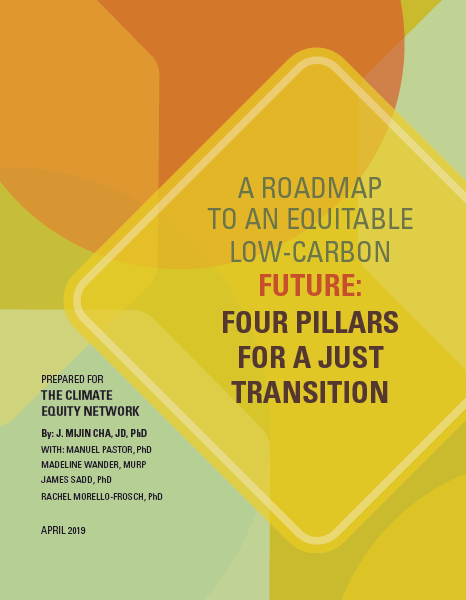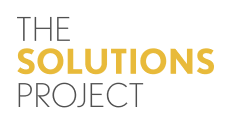 Last year, the UN’s Intergovernmental Panel on Climate Change (IPCC) released a groundbreaking report which found that countries must take drastic action within the next twelve years in order to avoid the worst impacts of climate change. Specifically, we must transition to a low carbon economy and we must do this faster than we previously thought. We must make investments in clean energy and green career training opportunities at a scale that we have not yet seen before. But how do we make sure this shift happens in a way that’s equitable for workers and communities? Researchers at USC PERE and Occidental College have teamed up to help answer this very question in a new report, “A Roadmap to an Equitable Low-Carbon Future: Four Pillars for a Just Transition”, which is out today!
Last year, the UN’s Intergovernmental Panel on Climate Change (IPCC) released a groundbreaking report which found that countries must take drastic action within the next twelve years in order to avoid the worst impacts of climate change. Specifically, we must transition to a low carbon economy and we must do this faster than we previously thought. We must make investments in clean energy and green career training opportunities at a scale that we have not yet seen before. But how do we make sure this shift happens in a way that’s equitable for workers and communities? Researchers at USC PERE and Occidental College have teamed up to help answer this very question in a new report, “A Roadmap to an Equitable Low-Carbon Future: Four Pillars for a Just Transition”, which is out today!
The report takes a look at how tribes, states, and countries have proactively responded to economic disruptions caused by deindustrialization and globalization to create just transitions for and with impacted communities and workers. From these case studies, the authors conclude that four principles are necessary to ensure that we transition to a low carbon economy in a way that protects and economically uplifts impacted workers and communities:
- Strong governmental support
- Dedicated funding streams
- Strong, diverse coalitions
- Economic diversification
Our state is in a moment where we’re realizing that incremental approaches to climate change are not enough. South LA and other environmental justice communities are feeling the impacts of climate change worse than ever before and our communities are already suffering from unjust transitions due to automation, outsourcing, and industry decline. Right now, we have an opportunity to change course, protect our environment, and create an economy that meets our needs. To truly address climate change in a way that honors the humanity of those living and working on the frontlines, we must start building towards a just transition for California now.












